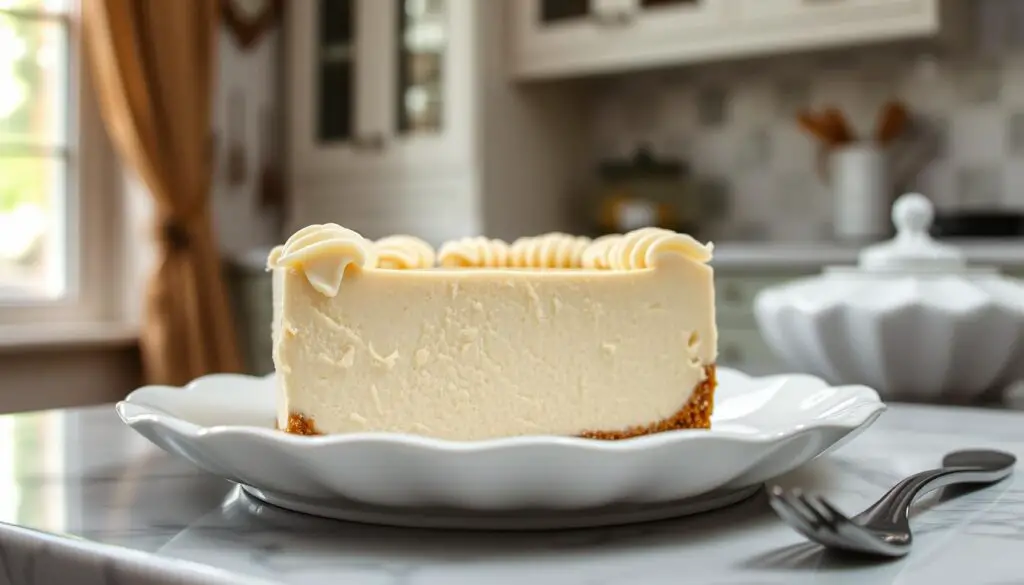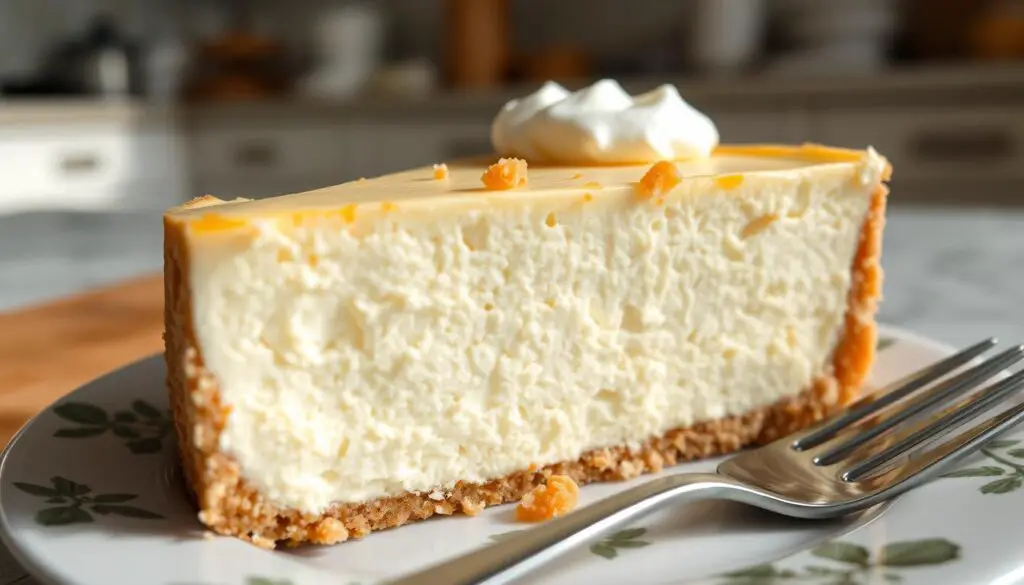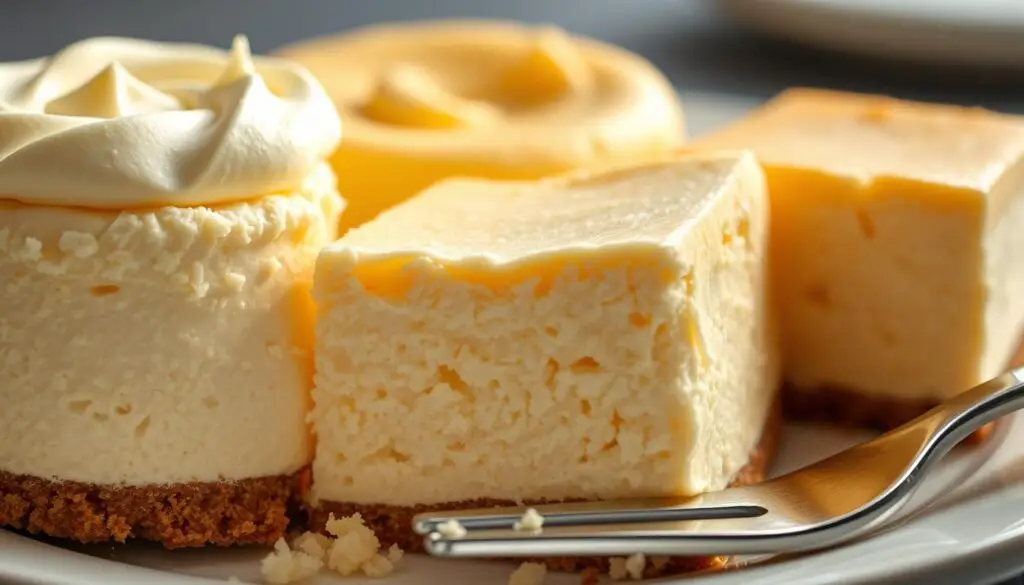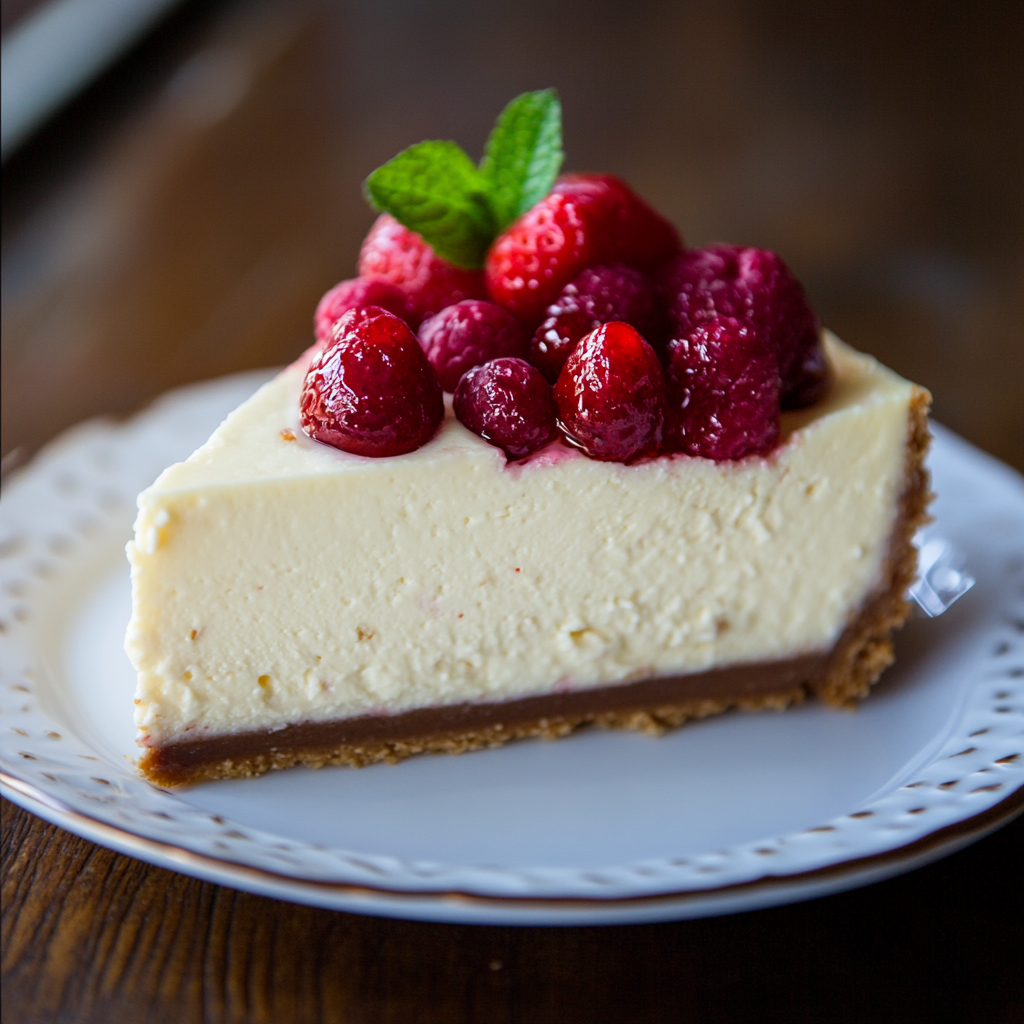When it comes to creating the perfect cheesecake, Philadelphia cream cheese is often hailed as a go-to ingredient for its rich and creamy texture. However, there are instances where you might seek Philadelphia cream cheese alternatives, whether due to availability, dietary preferences, or a desire for something new. Understanding the importance of cream cheese in crafting that delightful cheesecake without Philadelphia is essential, as it plays a vital role in achieving the desired consistency and flavor.
In this exploration of cream cheese substitutes, we will delve into various alternatives that can effectively replace Philadelphia while maintaining the essence of this beloved dessert. From classic options to innovative ingredients, there is a diverse array of choices that can elevate your cheesecake experience.
Key Takeaways
- Philadelphia cream cheese is a popular choice for cheesecake but not the only option.
- Exploring cream cheese substitutes can enhance your dessert portfolio.
- Alternatives can provide different flavors and textures for cheesecakes.
- Dietary preferences offer many choices beyond traditional cream cheese.
- Using quality ingredients is crucial for achieving the best results.
Introduction to Cream Cheese Alternatives
Exploring cream cheese substitutes opens up a world of culinary possibilities. Many bakers and dessert enthusiasts choose to experiment with different types of cream cheese alternatives, driven by dietary restrictions, allergies, or simply the desire to try new flavors and textures.
Understanding the nuances of various options available on the market is essential. Each substitute offers unique characteristics that can significantly influence cheesecake variations. When selecting a suitable alternative, it’s important to consider factors such as taste, texture, and fat content.
Different cream cheese substitutes may create variations in your end product, adding depth to your desserts. The journey through these alternatives can lead to delightful surprises and new favorite recipes.
Why Philadelphia Cream Cheese is Popular
The popularity of Philadelphia cream cheese among bakers can be attributed to several key factors. Its creamy texture provides a delightful mouthfeel, making it an excellent choice for various recipes. The consistent quality of this cream cheese ensures that each cheesecake base remains velvety and smooth, allowing bakers to achieve reliable results time after time.
Versatility stands out as another crucial aspect of Philadelphia cream cheese. It seamlessly integrates into numerous dessert recipes, enabling enthusiasts to explore various flavor combinations. From classic cheesecakes to innovative twists, this cream cheese product has become a staple in many kitchens.
Branding and marketing play significant roles in the sustained popularity of Philadelphia cream cheese. Through compelling advertisements and partnerships with culinary influencers, the brand has positioned itself as synonymous with quality cream cheese products. This strong branding has fostered an emotional connection with consumers, linking Philadelphia cream cheese to cherished family traditions and celebrations.
Real-world examples further emphasize its prominence. Iconic desserts like the New York-style cheesecake highlight the essential role of Philadelphia cream cheese in creating rich, satisfying flavors. As a result, many bakers turn to this well-established brand, ensuring that their confections deliver the authenticity and taste that people have come to expect.
| Factor | Description |
|---|---|
| Texture | Creamy and smooth, perfect for cheesecakes |
| Quality | Consistent results in various recipes |
| Versatility | Integrates well into numerous dessert styles |
| Branding | Strong marketing ties to quality and tradition |
| Usage | Essential ingredient in classic desserts |
What can I use instead of Philadelphia in cheesecake?
When considering alternatives for Philadelphia cream cheese in cheesecakes, it is essential to explore various substitutes that can achieve comparable textures and flavors. Familiarizing yourself with different options will aid in finding cream cheese substitutes that suit your recipe.
Understanding Cream Cheese Substitutes
Several products can serve as cream cheese replacements, including different types of cheese and alternative dairy options. Here are some popular choices:
- Mascarpone cheese
- Ricotta cheese
- Greek yogurt
- Cottage cheese
- Silken tofu
Each of these substitutes offers unique characteristics. For example, mascarpone lends a rich creaminess, while Greek yogurt brings a tangy flavor. Choosing cream cheese alternatives allows for innovation in flavor profiles and texture.
Criteria for Choosing an Alternative
When selecting the best cream cheese substitute, consider the following cream cheese replacement criteria:
- Texture: Aim for a smooth and creamy consistency that mimics Philadelphia.
- Flavor: Choose alternatives that can match or complement the rich taste of cream cheese.
- Baking Chemistry: Consider how the substitute will react during baking, especially regarding moisture and setting.
By taking these factors into account, you will make informed choices when finding cream cheese substitutes for your cheesecake recipes.
Popular Cream Cheese Substitutes
When seeking out alternatives to traditional cream cheese in cheesecakes, several popular options can provide unique flavors and textures. These substitutes not only replace the creaminess of Philadelphia but also add distinct characteristics that can enhance your dessert. Below, the leading alternatives are explored, highlighting their benefits and uses in cheesecake recipes.
Mascarpone Cheese
Mascarpone is a rich, creamy cheese often praised for its luxurious texture and subtle flavor. This popular cream cheese alternative is particularly suitable for decadent desserts, making it a top choice for those who desire a smooth and indulgent cheesecake. Utilizing mascarpone for cheesecake infuses the dessert with a unique richness, elevating the overall taste experience.
Ricotta Cheese
For those looking for a lighter option, ricotta serves as an excellent cream cheese substitute. Its soft, grainy texture presents a different mouthfeel but maintains a delightful flavor balance. When using ricotta cheese, it’s important to blend it thoroughly to achieve a creamier result. This ricotta cream cheese substitute can add moisture while keeping your cheesecake light and satisfying.
Greek Yogurt
Incorporating Greek yogurt in cheesecake provides a healthier alternative with added protein and a tangy flavor. This option is perfect for health-conscious bakers, as Greek yogurt offers a low-fat solution without sacrificing taste. It helps create a balanced flavor profile in the cheesecake, making it a popular choice amongst those who want a lighter dessert.
| Substitute | Texture | Flavor Profile | Best Use |
|---|---|---|---|
| Mascarpone | Creamy | Rich and subtle | Decadent cheesecakes |
| Ricotta | Grainy | Light and sweet | Lighter cheesecakes |
| Greek Yogurt | Thick and smooth | Tangy | Healthier options |
Vegan and Dairy-Free Options
Many dessert enthusiasts seek vegan cream cheese alternatives when making dairy-free cheesecake. Two standout options are coconut cream and silken tofu, both offering unique textures and flavors suitable for a variety of recipes.
Coconut Cream
Coconut cream provides a rich, creamy texture that works beautifully in vegan desserts. Its slight sweetness enhances the flavor profile of dairy-free cheesecake. Using coconut cream in recipes can elevate the dish, creating a smooth and luscious filling. Look for full-fat coconut cream for optimal results, as it blends easily and remains stable when baked.
Silken Tofu
Silken tofu serves as an excellent base for a wholesome dairy-free cheesecake. Blending silken tofu results in a smooth consistency, while its neutral flavor allows other ingredients to shine. This option is particularly appealing for those looking for a high-protein alternative. Incorporating silken tofu can also add a unique creaminess to coconut cream recipes.
| Alternative | Texture | Flavor | Protein Content |
|---|---|---|---|
| Coconut Cream | Rich and creamy | Sweet | Low |
| Silken Tofu | Smooth and soft | Neutral | High |
Experiment with these vegan cream cheese alternatives to create delightful dairy-free cheesecakes. They not only cater to dietary preferences but also add a unique twist to traditional recipes.
Healthier Alternatives to Philadelphia
When it comes to making cheesecake, many individuals seek healthier alternatives to traditional cream cheese. Embracing options like low-fat cream cheese and cottage cheese can help reduce calorie and fat intake while still maintaining delicious flavors and textures. Here are two excellent choices for a healthier dessert.
Cottage Cheese
Cottage cheese in cheesecake serves as a fantastic substitute that boosts nutritional value. Rich in protein and lower in fat, cottage cheese can easily be blended to achieve a creamy consistency. This ingredient not only enhances the dish’s texture but also provides a unique flavor that complements the sweetness of cheesecake. Many health-conscious bakers find it a delightful addition, allowing them to indulge without the guilt associated with traditional cream cheese.
Low-Fat Cream Cheese Options
Low-fat cream cheese presents another viable option for those seeking healthy cream cheese substitutes. Available in most grocery stores, this alternative retains a similar flavor profile to regular cream cheese while significantly reducing the fat content. Using low-fat cream cheese in a cheesecake recipe can yield a deliciously creamy dessert that is satisfying yet light. This makes it a popular choice for health-minded individuals looking to enjoy classic cheesecake without compromising their dietary goals.

Tips for Baking with Alternatives
When utilizing cream cheese substitutes in cheesecake recipes, a few key baking tips can enhance the final product. This section addresses important aspects such as texture considerations and flavor adjustments, ensuring a delightful cheesecake experience.
Texture Considerations
Adjusting texture in cheesecake can significantly impact the dish’s quality. Each replacement behaves differently under heat, affecting creaminess and structure. For instance, using ricotta cheese often results in a grainier texture, so blending it smoothly is essential for a uniform consistency. On the other hand, mascarpone offers a luscious creaminess, ideal for achieving a traditional cheesecake feel. Here are some useful baking tips for cream cheese alternatives:
- Blend substitutes thoroughly to eliminate clumps.
- Consider adjusting the moisture content when using yogurt, as it tends to be thinner.
- Use a touch of cornstarch or arrowroot powder to stabilize the filling and enhance thickness.
Flavor Adjustments
Flavor tips for cheesecake play a vital role in ensuring your dessert remains delicious regardless of the substitutes chosen. Variations in sweetness and acidity can emerge with different ingredients. For example, silken tofu may require additional sweetness to balance its subtle taste. Here are some guidelines for flavor adjustments:
- Taste the mixture as you go, adjusting sugar to maintain a sweet flavor profile.
- Incorporate a splash of lemon juice or vanilla extract to enhance overall flavor.
- Experiment with flavorings like almond or orange zest to add complexity to your cheesecake.
Through careful consideration of these elements, you can create a delicious cheesecake that meets your expectations, even with diverse cream cheese alternatives.
Cheesecake Recipes Using Substitutes
Exploring cheesecake recipes with substitutes can open up new flavor dimensions while catering to dietary needs. Using alternatives such as mascarpone or Greek yogurt can give your cheesecake a unique twist, making each bite a delightful experience. Here are two popular recipes showcasing these alternatives.
Recipe Using Mascarpone
The mascarpone cheesecake recipe offers a rich, creamy texture that is truly indulgent. This Italian cheese enriches the flavor, providing a luxurious experience for cheesecake lovers.
- Ingredients:
- 2 cups of mascarpone cheese
- 3/4 cup of granulated sugar
- 3 large eggs
- 1 teaspoon of vanilla extract
- 1 cup of graham cracker crumbs
- 1/4 cup of unsalted butter, melted
- Instructions:
- Preheat your oven to 325°F (163°C).
- Mix the graham cracker crumbs with melted butter and press into a greased springform pan.
- In a bowl, beat mascarpone cheese with sugar until smooth.
- Add eggs one at a time, mixing well after each addition.
- Stir in vanilla extract.
- Pour the mixture into the crust and bake for 50-60 minutes.
- Let it cool before refrigerating for at least 4 hours.
Recipe Using Greek Yogurt
The Greek yogurt cheesecake recipe provides a lighter, healthier alternative that retains the classic cheesecake taste. The tangy flavor of Greek yogurt enhances the overall experience while using less sugar and fat.
- Ingredients:
- 2 cups of Greek yogurt
- 1/2 cup of honey or other preferred sweeteners
- 2 large eggs
- 1 teaspoon of lemon juice
- 1 cup of digestive biscuit crumbs or any preferred crust
- 1/4 cup of unsalted butter, melted
- Instructions:
- Preheat your oven to 350°F (175°C).
- Combine digestive biscuit crumbs with melted butter and press firmly into a pie pan.
- In a mixing bowl, whisk together Greek yogurt, honey, eggs, and lemon juice until smooth.
- Pour the filling into the crust and smooth the top.
- Bake for 30-35 minutes, watching for a slight jiggle in the center.
- Cool completely and refrigerate for several hours before serving.
For more insights on cream cheese alternatives that elevate your baking, check out different cream cheese substitutes and their uses.
Common Mistakes When Substituting Cream Cheese
When embarking on the journey of substituting cream cheese in cheesecake recipes, many bakers encounter significant pitfalls. These mistakes in cream cheese substitution can lead to disappointing results, ruining the potential of a delightful dessert. It’s essential to recognize common issues that arise during the process to ensure a successful outcome.
Ignoring Flavor Profiles
A frequent error among bakers involves not considering the flavor profiles of various substitutes. Each alternative, whether it’s mascarpone, ricotta, or Greek yogurt, brings its unique taste. Not taking this into account can result in an unbalanced cheesecake. For instance, a sweeter substitute may overpower the cake, while a tangier option can alter the intended flavor dramatically. Understanding these nuances prevents cheesecake baking errors and results in a well-rounded dessert.
Overloading with Moisture
Another prevalent issue is the tendency to use substitutes that carry excess moisture. Ingredients like ricotta and certain types of yogurt can introduce unwanted liquid into the mix. This overload may lead to a soggy crust or an unstable texture in the final product. Failing to manage the moisture levels can result in cream cheese replacement common issues, making the cheesecake less enjoyable. It’s crucial to either choose drier alternatives or adjust the recipe to account for moisture content, ensuring a firm and delicious cheesecake.

How to Choose the Right Substitute for Your Recipe
Selecting the best alternative for cheesecake involves a few key considerations. Begin by identifying the type of cheesecake you intend to make, whether it’s baked, no-bake, or flavored. Each type may require a different texture and flavor profile, significantly influencing your choice of cream cheese substitutes.
Your dietary preferences or restrictions play a crucial role when choosing cream cheese substitutes. Vegan, lower-fat, or specific dietary needs can guide your decision toward a suitable alternative. For instance, those avoiding dairy may find that silken tofu or nut-based creams fit well in their recipes, effectively mimicking traditional cream cheese textures.
To enhance your cooking experience, consider maintaining a balance between flavor and texture. Some substitutes may alter the cheesecake’s taste, while others might change its consistency. Understanding the goals of your cheesecake—creamy, tangy, or rich—will lead to better outcomes in the kitchen.
Here’s a quick recipe substitution guide that highlights popular cream cheese alternatives based on cheesecake types:
| Cheesecake Type | Best Alternative | Additional Notes |
|---|---|---|
| Baked Cheesecake | Ricotta Cheese | Offers a slightly grainy texture but works well with eggs. |
| No-Bake Cheesecake | Mascarpone Cheese | Yields a creamy and luxurious texture. |
| Flavored Cheesecake | Greek Yogurt | Enhances tanginess while adding protein. |
| Dairy-Free Cheesecake | Coconut Cream | Imparts subtle flavor while creating a rich consistency. |
With an informed approach to choosing cream cheese substitutes, you can create delicious cheesecakes that cater to your personal palate and dietary requirements.
Experts’ Opinions on Cream Cheese Alternatives
Turning to culinary professionals for insights offers valuable perspectives on cream cheese substitutes. Expert advice on cream cheese substitutes highlights the importance of selecting alternatives that align with both flavor and texture profiles. Many pastry chefs emphasize the need to experiment with different products like mascarpone or ricotta, as each brings its unique attributes to desserts.
“Using mascarpone can enhance creaminess, while Greek yogurt introduces a hint of tang,” shares a well-known pastry chef.
Professional baker tips often involve understanding moisture content to avoid altering the overall result. Some chefs note that silken tofu can be whipped to mimic cream cheese, providing a dairy-free option without sacrificing texture. When choosing your substitute, consider personal preferences for taste and dietary requirements.
Opinions on cheesecake alternatives vary, but a consensus exists: embracing these substitutes can yield delicious results. Chefs recommend preparing a small test batch before committing to a larger recipe to gauge flavor satisfaction. This practice helps avoid pitfalls that can arise from unfamiliar ingredients.
| Substitute | Texture | Flavor Profile | Best Used In |
|---|---|---|---|
| Mascarpone | Creamy | Rich and Sweet | Classic Cheesecakes |
| Ricotta | Grainy but Smooth | Mild | Italian Style Desserts |
| Greek Yogurt | Thick | Tangy | Health-Conscious Recipes |
| Silken Tofu | Smooth | Neutral | Dairy-Free Variations |
The Impact of Substitutes on Cheesecake Texture
When exploring alternatives to traditional cream cheese in cheesecake, it is essential to understand how these substitutes can lead to distinct cheesecake texture changes. The role of fat content and moisture levels plays a significant part in achieving the desired consistency. Different substitutes can create lighter or denser results, thus altering the overall eating experience.
For example, using ricotta cheese may yield a creamier texture due to its higher moisture content, while mascarpone can provide a richer mouthfeel, affecting the final product’s density. Conversely, the effects of cream cheese substitutes like Greek yogurt can lead to a lighter cheesecake since it often has lower fat content compared to regular cream cheese.
Understanding how various ingredients behave allows for smarter baking with alternatives. Here’s a comparative overview of common substitutes and their potential impact on cheesecake texture:
| Substitute | Fat Content (%) | Moisture Level (%) | Texture Outcome |
|---|---|---|---|
| Philadelphia Cream Cheese | 33 | 56 | Rich and dense |
| Mascarpone | 44 | 51 | Creamy and rich |
| Ricotta Cheese | 25 | 68 | Light and airy |
| Greek Yogurt | 10 | 82 | Light and tangy |

Tweaking recipes with different substitutes based on these insights can significantly influence the final texture of your cheesecake, ensuring a delightful experience with every slice.
Conclusion
In this exploration of alternatives for Philadelphia cream cheese, we’ve uncovered a variety of cream cheese substitutes that cater to diverse tastes and dietary needs. The summary of cream cheese alternatives reveals options such as mascarpone, ricotta, and even vegan choices, ensuring that everyone can enjoy a delicious cheesecake, regardless of their preferences or restrictions.
As we’ve discussed throughout the article, the importance of personal taste cannot be overlooked when selecting the best substitute for your cheesecake. Final thoughts on cheesecake substitutes emphasize that experimenting with different alternatives not only yields unique flavors but also allows for healthier or more adaptable recipes. Consider factors like texture and moisture levels to ensure a successful cheesecake creation.
Ultimately, the flexibility of these alternatives for Philadelphia invites creativity in the kitchen. Gather your ingredients and let the exploration begin—who knows what delightful new cheesecake recipes await? Whether you choose a creamy mascarpone or opt for a lighter option, the world of cheesecake has endless possibilities just waiting to be discovered.
FAQ
What are some Philadelphia cream cheese alternatives for cheesecake?
Some popular Philadelphia cream cheese alternatives for cheesecake include mascarpone cheese, ricotta cheese, and Greek yogurt. These substitutes can provide varying textures and flavors, allowing for creative cheesecake variations.
Can I make a cheesecake without Philadelphia cream cheese?
Absolutely! You can make a cheesecake using various cream cheese substitutes such as coconut cream for a vegan option, or low-fat cream cheese for a healthier choice, while still achieving a delectable dessert.
How do I choose the best cream cheese substitute for my recipe?
When choosing a cream cheese substitute, consider the following criteria: texture, flavor, and moisture content. This ensures that the substitute will blend well into your cheesecake, affecting the overall taste and consistency.
Are there healthy cream cheese substitutes available for cheesecake?
Yes! Options like cottage cheese and low-fat cream cheese are great for those looking to enjoy a healthier version of cheesecake without compromising too much on flavor or creaminess.
What mistakes should I avoid when substituting cream cheese in cheesecake recipes?
Common mistakes include ignoring the flavor profiles of substitutes, which can impact the taste, and overloading with moisture, which may lead to a soggy crust or unstable texture. Always adjust your recipe accordingly when making substitutions.
Can I use vegan options for making cheesecake?
Yes, you can use coconut cream or silken tofu as vegan cream cheese alternatives. They provide a creamy texture suitable for cheesecake while aligning with plant-based dietary preferences.
What effects do cream cheese substitutes have on cheesecake texture?
The choice of substitute can significantly alter cheesecake texture. Ingredients like mascarpone create a richer, creamier result, while Greek yogurt may yield a lighter texture. Understanding fat and moisture content is key to achieving your desired consistency.
Are there cheesecake recipes that specifically use substitutes?
Yes! There are many cheesecake recipes that utilize substitutes. For example, mascarpone cheesecake recipes highlight the indulgent creaminess of mascarpone while Greek yogurt cheesecake recipes focus on a fresher, tangy flavor profile.
What are the best tips for baking with cream cheese alternatives?
Adjusting for texture and making flavor corrections are essential when baking with cream cheese alternatives. Make sure to balance sweetness and acidity for a well-rounded cheesecake taste.
What do experts say about using cream cheese substitutes?
Culinary professionals often emphasize the versatility of cream cheese substitutes and recommend experimenting with different options to find the best flavor and texture combination for your cheesecake.


I don’t think the title of your article matches the content lol. Just kidding, mainly because I had some doubts after reading the article.
I don’t think the title of your article matches the content lol. Just kidding, mainly because I had some doubts after reading the article.